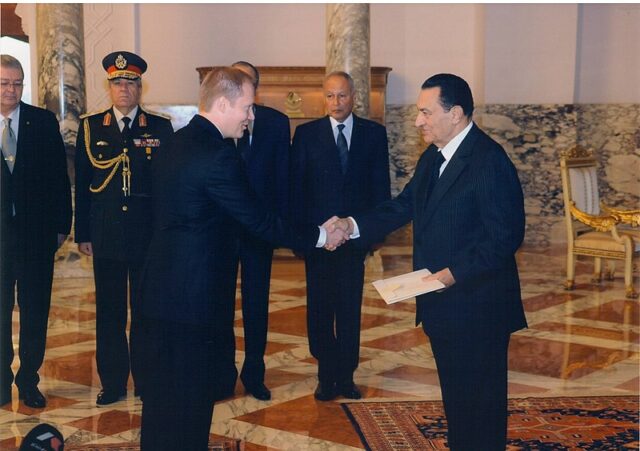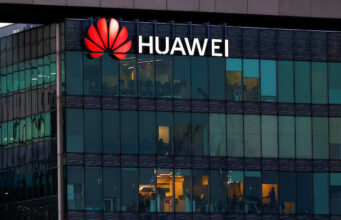“The corrupt butcher has died without being held truly accountable for his crimes.”
Many Egyptians would concur with the sentiments of activist and journalist Hossam al-Hamalawy on the death of former president Hosni Mubarak at the age of 91. His last years were spent in the luxury of the Cairo suburb of Heliopolis and a villa in Sharm el-Sheikh. Of course, he spent some years in jail after being overthrown during the Arab Spring uprisings that swept his country in 2011, but some would say he spent too few years there to atone for his 30 years as president.
Not so Israel’s Prime Minister Benjamin Netanyahu whose condolences were possibly heartfelt, after all Mubarak had kept the Camp David Accords with Israel. “President Mubarak, my personal friend, was a leader who led his people to peace and security, to peace with Israel. I met with him many times. I was impressed by his commitment; we will continue to follow this common path.”
Mubarak’s legacy probably presents a dilemma for current Egyptian President Abdel Fattah el-Sisi. He condoled Mubarak’s death quietly and then went on to laud Gamal Abdel Nasser, revered as a national hero. Sisi, a dictator of no mean calibre, is probably uncomfortably aware that if an entrenched Mubarak could be overthrown by his people, so could he.
Mubarak was popular as an air force chief, credited with using his fleet of Russian jets to attack Israel during the 1973 Yom Kippur War. But his rise to the presidency was pure accident, rising to the top job after President Anwar el-Sadat was killed as he reviewed a military parade. Once in the saddle, Mubarak moved quickly to consolidate his position, assuming sweeping powers and suffocating his countrymen with tough internal security laws and a brutal police apparatus.
He cultivated ties with the Americans, portraying himself as the man who alone could keep Egypt stable and out of the grip of Islamic extremists. In return he got more than $2 billion every year in military and economic aid, although precious little filtered down to his unfortunate people.
He survived successive assassination attempts, the most famous was in 1995 during an African summit in Ethiopia. It was rumoured that his own personal bodyguards were involved although the authorities blamed Islamic extremists. In fact, Mubarak faced a constant challenge from the Gama’a al-Islamiyya, but for all his efforts, was never able to eliminate them completely.
His comeuppance came post 9/11, when US policy towards Egypt and the rest of the region underwent a drastic change. Authoritarian regimes were seen as a threat and the only solution lay in democracy. That saw the US reach out to organisations like the Muslim Brotherhood, in the belief they could be “transformed” and “moderated.”
The Arab Spring which saw huge demonstrations in Cairo’s Tahrir Square, added to Mubarak’s troubles. There was widespread outrage over corruption, abuse of power and the state-ordered killing of opposition figures and activists. His overthrow was inevitable but typical of the man, during his trial, he refused to accept blame or voice any remorse over the deaths of hundreds of people at the hands of the security forces. For Egyptians, his death may matter little since they have to contend with Sisi who has proved as ruthless as Mubarak.
TRIBUTES
Palestinian Authority President Mahmoud Abbas
“His Excellency praised the stances of the late President in supporting the Palestinian cause and the Palestinian people, in achieving their rights to freedom and independence. He mourns the death with great sorrow,” said a statement from the official Palestinian news agency
Statement from the Egyptian presidency
“The Presidency mourns, with great sorrow, former President of the Republic, Mr. Mohamed Hosni Mubarak, for what he presented to his homeland as a leader and hero of the glorious October war…”
Former Atomic Energy Agency president, Mohamed El-Baradei
“May God have mercy on the former president … and grant his family patience and comfort.”
















